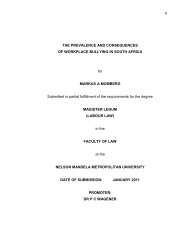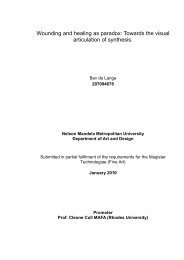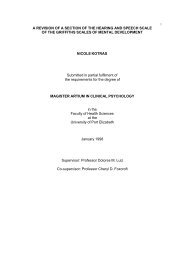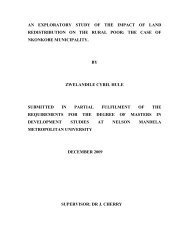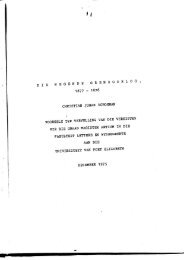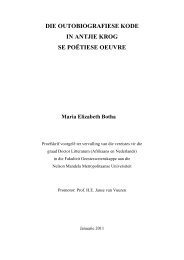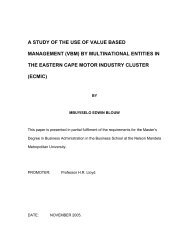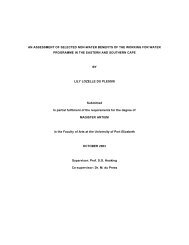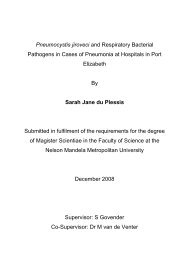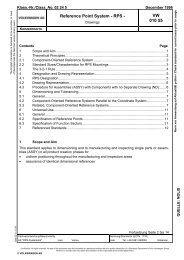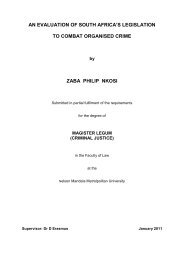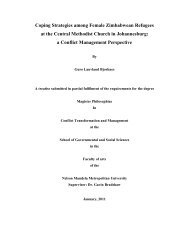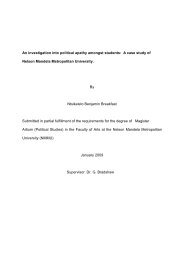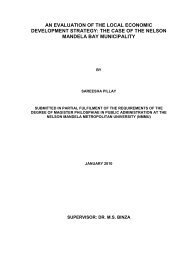Elaine Browne.pdf - Nelson Mandela Metropolitan University
Elaine Browne.pdf - Nelson Mandela Metropolitan University
Elaine Browne.pdf - Nelson Mandela Metropolitan University
Create successful ePaper yourself
Turn your PDF publications into a flip-book with our unique Google optimized e-Paper software.
Introduction<br />
Chapter 2<br />
Literature review<br />
Motshekga, current Minister of Education, stated unambiguously that South Africa urgently<br />
needs “dedicated, inspired teaching” (2009, 3). As such, she reiterated that teachers are the<br />
key change agents to the realisation of improved quality education in South Africa. Pudi (2006,<br />
100) also sees teachers as the central change agents enabling educational transformation.<br />
Fullan (1991, 117) agrees, asserting that the success of educational change largely “depends on<br />
what teachers do and think” [own emphasis].<br />
However, in order to be a successful change agent, the teacher needs to understand the<br />
change, be part of it and support it. Hence, the teacher, as change agent, needs to embrace the<br />
change and engage with it. Fullan (1991, 117) as well as Onwu and Mogari (2004, 161) thus<br />
highlight a fundamental prerequisite for successful educational change, namely competent<br />
teachers, who possess solid content knowledge and are confident about their ability to<br />
facilitate teaching and learning in the classroom. In this chapter, the notion of a competent<br />
teacher will be discussed, not only in general terms, but also more particularly, as pertaining to<br />
arts education. In order to do so, I will also provide insight into the unique nature of this<br />
learning area.<br />
15



